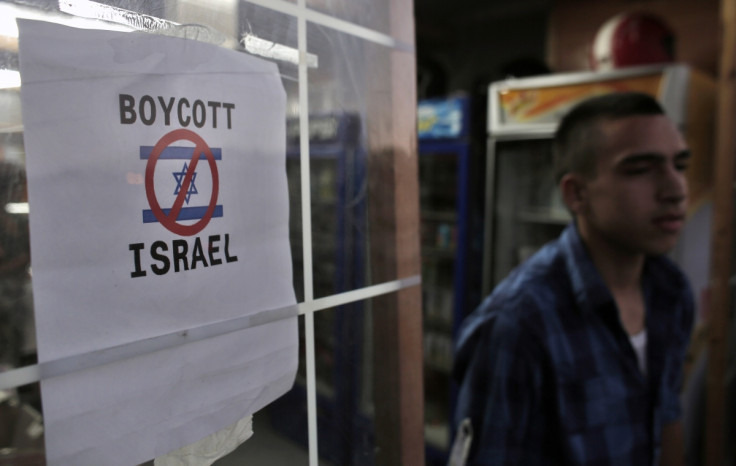Israel boycotts are used as a cover for anti-Semitism - Britain must take a stand for democracy

The British government is currently preparing to unveil rules that will prohibit public institutions from adopting boycotts against Israel. Under the new legislation, all publicly funded institutions, such as local town halls, universities, and students unions, could face prosecution should they pursue and enforce the boycott of goods and services from the Jewish state.
Critics argue that the move amounts to a gross attack on democratic freedoms. But does it really? The truth is that there is nothing democratic about singling out Israel – and only Israel - for boycotts out of all countries in the world.
Israel is a vibrant democracy that protects the rights of women, homosexuals and religious minorities. Arabs in Israel have more freedoms than Arabs in any other Arab country. In fact, Israel is the only functioning democracy in the entire Middle East region, surrounded by cruel dictatorships that engage in systematic and egregious human rights violations. And yet the Boycott, Divestment and Sanctions (BDS) movement calls for the isolation of only one state: Israel.
Across Europe, politicians, academics and students launch "Israel Apartheid week", erect "Israeli Apartheid Walls" and push for cities and campuses to become "Israel-free zones". If you are looking for "Iran Apartheid week", one of the worst violators of human rights in the world, you are looking in vain. If you are searching for a "Saudi Apartheid Wall", a kingdom where gender apartheid is practiced in its purest form, you will be disappointed. And if you are looking for a "Syria-free zone", in protest against Bashar al-Assad's murderous campaign against his own people, you will find no such thing.
The primary goal of the BDS movement is the destruction of Israel, not the well-being of the Palestinian people. How else might one explain the selective outrage and moral myopia when it comes to the imprisonment, torture and killing of Palestinians in Arab countries?
The Syrian regime currently starves to death almost 18,000 Palestinians in the notorious Yarmouk refugee camp near Damascus. Hundreds have already died from malnutrition. However, if you visit the website of the Palestinian Solidarity Camp, you get all the information on why and how to get involved in BDS. However, the suffering of the Palestinians in Yarmouk is little more than a side issue to them.
The BDS movement and its supporters seek not only the destruction and delegitimisation of the state of Israel, it also demonises and targets Jewish people at a time when Europe is becoming increasingly unsafe for those who openly identify as Jews. Every year on Holocaust Memorial Day, we are being reminded of the parallels between the Shoa and the alleged genocide of Palestinians in Gaza.
Of course, freedom of speech, not matter how intellectually dishonest one's position might be, is not a crime and boycotts, per se, are not inherently racist. But too often anti-Israel sentiments are used as a political cover for anti-Semitism. Anti-Semitism is not free speech. In fact, like any form of racial intolerance, it is the enemy of free speech.
Let us be clear about the true nature of the BDS movement. They want Israel to be erased from the map. The BDS leadership advocates the full right return of the Palestinians - from the river to the sea – a "Judenfrei" Middle East region. That makes BDS more than just an anti-Israel movement; it makes it an attack on the very principles we hold dear in this country.
To oppose BDS is a moral imperative and the new British legislation, expected to be announced by Matt Hancock, Britain's cabinet office minister, on a visit to Israel later this week, should be welcomed. It is a necessity against a movement that, for too long, has applied double standards that have dangerously blurred the line between legitimate criticism of Israeli policies and anti-Semitism.
It also sets Britain apart from a controversial directive issued by the European Union (EU) in November 2015 that makes it mandatory for Israeli producers to explicitly label goods produced in disputed territories. Again, it is difficult to see how the new EU directive is not discriminatory against the Jewish state, given that the EU does not enforce the same legislation in other long-standing international territorial disputes, such as Tibet, Western-Sahara and Kashmir.
Perhaps Britain, with its principled and courageous stance against the boycotts against Israel, can offer a model to the rest of Europe.
Julie Lenarz is the Executive Director of the Human Security Centre. She tweets @MsJulieLenarz
© Copyright IBTimes 2025. All rights reserved.






















